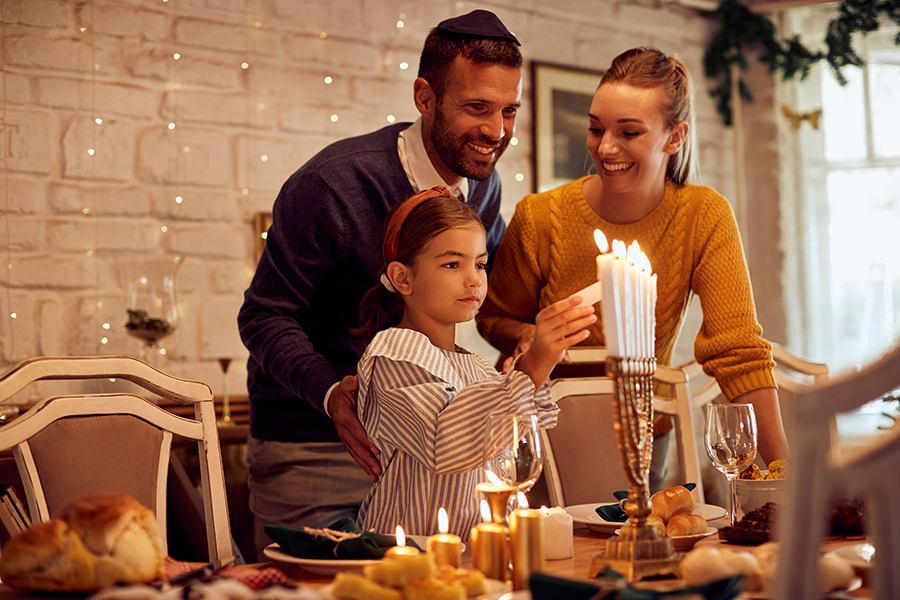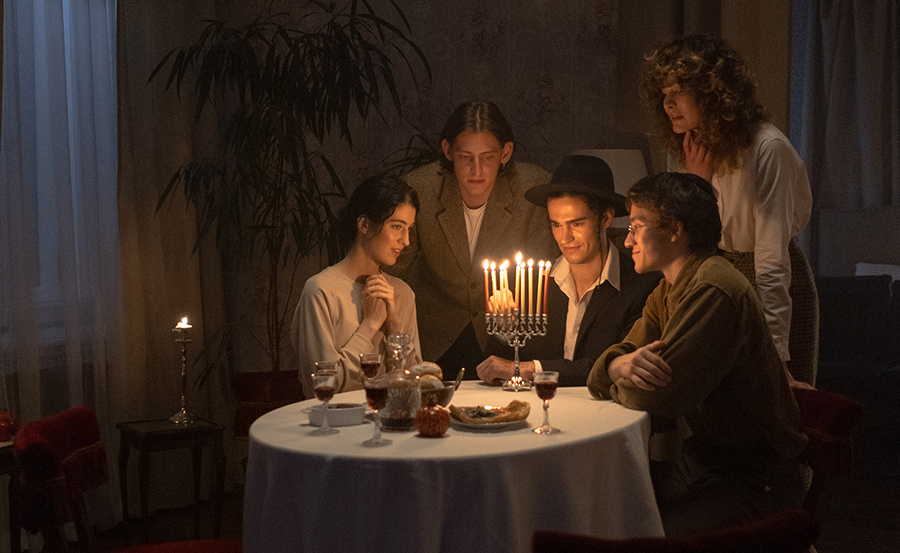Hanukkah (which means “dedication” and which you may also see spelled Chanukah due to the translation from Hebrew to English) is a winter holiday in Judaism.
While you may hear some people refer to it as “the Jewish version of Christmas” because both holidays fall towards the end of the year, this is incorrect. Also known as the Festival of Lights, Hanukkah is its own holiday with a separate history and traditions. In fact, it predates Christmas by hundreds of years!
The holiday dates back to 164 BCE, the year of a major event in the Maccabean Revolt, a war in which the Jewish people fought back against the oppression of King Antiochus IV Epiphanes of Syria, who attacked the city of Jerusalem, outlawed the practice of Judaism, and attempted to mandate the worship of the Greek gods. After driving the Syrians out of the city, the desecrated temple needed to be repaired and rededicated, but the people only had one night’s worth of oil to light the menorah (Hebrew for “lamp”), a ceremonial candelabra with eight branches.

According to records, the oil lasted long enough to burn for eight nights instead, granting time to find more oil and properly bless it without letting the flame go out. An annual festival was established to honor the victory and the miracle; while some historians interpret events differently, this remains the most commonly told Hanukkah story.
Today, Hanukkah celebrates the Jewish people’s triumph over oppression and assimilation. While it is a minor holiday compared to other Jewish holidays (major holidays include Sukkot, Pesach/Passover, and the High Holy Days of Rosh Hashanah and Yom Kippur), it is still a popular and joyful celebration of freedom.
Hanukkah lasts eight nights, beginning at sundown on the first night and ending at nightfall on the eighth night (because Jewish holidays are determined by the lunisolar calendar, they fall on different dates every year).

Observers light one candle on their menorah per night, using a ninth candle called the shamesh, or “helper.” Prayers are recited and traditional holiday songs are sung during the lighting of the candles. The menorah is usually in a place where everyone can see it, such as a windowsill.
Traditional Hanukkah foods, which are also often eaten at other holidays and celebrations, are fried in oil: latkes and sufganiyot, fried potato pancakes and jelly-filled donuts, respectively, are popular among them. Large family meals are not common, save for the first and last days of Hanukkah.
Observers also play games with the dreidel (“spinning top”), using foil-wrapped chocolate coins to wager on which side the top will land. Decorating and gift-giving aren’t required, but some observers opt to decorate in blue and white, and often parents will give presents to children.
Hanukkah is not a federal holiday, so you can usually expect businesses, transportation, and government buildings to be operating on normal hours. However, since the final days of Hanukkah fall on the same days as Christmas, these establishments may be closed or operating on limited hours on December 24th and 25th. Observers may request time off from school or work in the evenings or to travel and spend the holiday with family, so be prepared to make accommodations.
If you have any questions or concerns, please feel free to contact us at info@gravityintprog.com. Stay safe and healthy!






